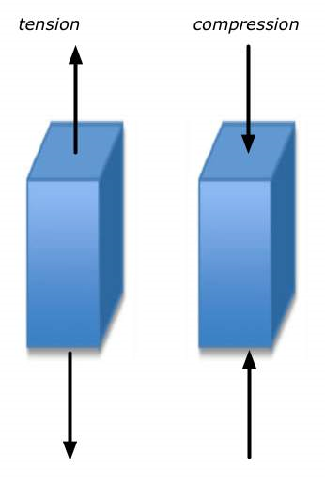
Concept of Young's Modulus
Young's Modulus is considered as a modulus of elasticity which refers to a measure of stiffness of an elastic material and this concept was introduced in the year 1727 by Leonhard Euler. It is defined as a numerical constant that is named after the scientist of Britain, Thomas Young, of the 19th-century. This is a mechanical property of the material through which it can withstand the elongation or compression in reference to material length. It is said to be an ability of a material to hold changes within the length when under lengthwise compression or tension. Young's Modulus is estimated as a ratio of longitudinal stress by longitudinal strain in which stress is referred to force per unit length and strain is referred to change in length from its original length. This is described as under with the help of a formula:
Young’s Modulus = Stress / Strain = (FL0) / A (Ln − L0)




















